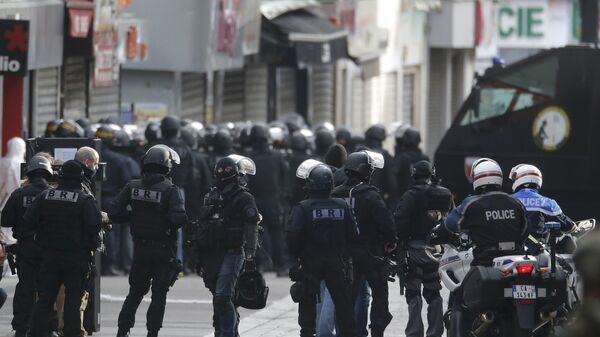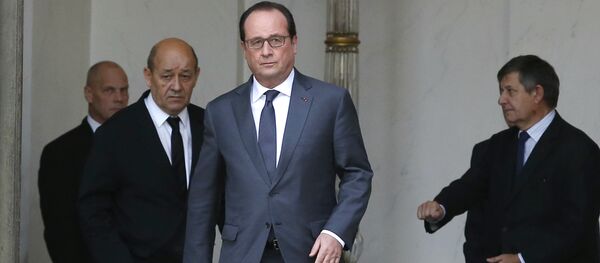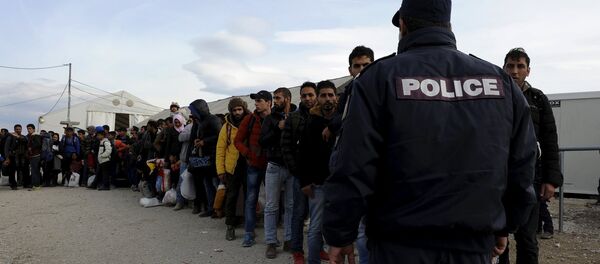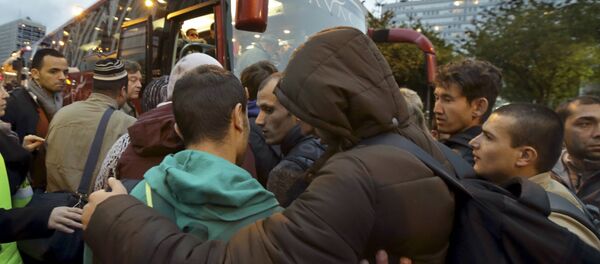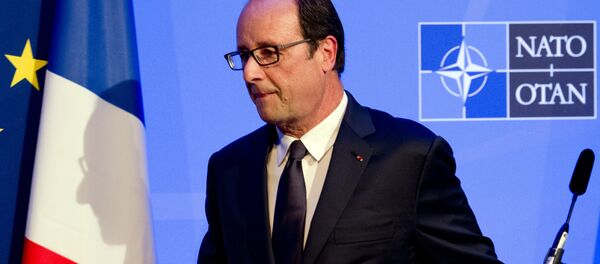The series of synchronized terrorist attacks that rocked Paris last Friday shocked the entire world, but they also tell us some discomfiting truths about the present state of affairs in Europe and where everything’s headed in the near future. Let’s take a look at what can be learned and forecast in the aftermath of this unprecedented tragedy:
Shattered Assumptions
Lightning Doesn’t Strike Twice:
There’s no doubt that France has always been in the jihadists’ sights and likely will continue to be by the mere fact of its existence (the same can be said for Russia, the UK, and others), but one can’t help but wonder whether Paris’ support of “moderate rebels” in Syria amplified the risk that it would receive the terrorist blowback that it demonstrably suffered through twice this year so far.
All “Refugees” Are Genuine:
Regretfully, as vocal and credible as these warnings were, they were totally ignored by the extreme liberal-progressive ideologues that dominate the EU. They refused to listen to the ‘political blasphemy’ that alleged that some of the “refugees” could be cold-blooded terrorists, but lo and behold, they were lethally mistaken and their religiously abided-by assumptions have been disproven to the highest degree possible.
Foreboding Conclusions
Meticulous Planning Preceded The Attacks:
Ahmad Almohammad, the “refugee”-posing terrorist that is thought to have arrived in France around mid-October, was probably just a foot soldier that was recruited to help carry out the pre-planned attack.
Continuing with this logic, it seems as though French-based terrorists (no matter if they were native to the country or newly arrived “refugees”) had organized the whole thing, and that they were in constant communication with their Mideast counterparts and were thus able to request additional terrorist support as needed (hence Almohammad’s journey to Paris).
An Undetermined Number Of Terrorists Have Already Infiltrated Europe:
There’s no way to tell how many of the over 750,000 “refugees” that entered Europe this year were actually terrorists, but it’s unrealistic that the Paris attackers were the only ones. Even assuming a conservative estimate of 1%, then that’s 7,500 terrorists, and seeing what carnage only 7 of them could do in Paris, it’s frightening to imagine the chaos that over a thousand times more of such scum could unleash all across the continent.
Border Security Isn’t Working:
No country can screen “refugees” for terrorist intent or sympathy, and the Interpol database is useless because passports could easily be faked. Even if an individual is forthcoming with their identity and passes a “security check”, that in no way mitigates the risk that they could be part of a terrorist sleeper cell.
A degree of certainty could be discerned if there was a way to assemble a list of every “moderate rebel”, but with this being impossible, there’s correspondingly no way for any country to guarantee the safety of its citizens.
Theoretically speaking, governments could coordinate with Damascus in implementing an intensified vetting and verification process prior to “refugee” admission, but since most EU states don’t recognize the legitimate authorities in Syria, their politically guided obstinance is literally proving to be deadly.
Disturbing Forecasts
Copy-Cat, Reprisal Attacks:
The knee-jerk reaction of terrorists everywhere is to carry out copy-cat attacks, but in the presently heightened security environment, they may opt to lay low for a while until Europe once more lets its guard down.
Likewise, it can’t be discounted that violent nationalist elements of “refugee”-hosting societies in France, Germany, and Sweden might take a page from the Right Sector playbook and indiscriminately target minorities just for the racist sake of it. Both types of incidents would skyrocket preexisting tensions within any state that they happen in and exert tremendous pressure on the government, perhaps even leading to its resignation or popular toppling.
Accelerated Fencing:
The chain reaction of increased fencing and enhanced border controls further “upstream”, however, could realistically create the conditions where tens of thousands of transiting “refugees” become indefinitely trapped in the Balkan states, where they don’t want to remain and which also never expected to host such astronomical numbers in the first place.
This could easily upset the balance in the already politically fragile countries of the region and lead to a plethora of unpredictable destabilizations, ranging from “refugee” riots to these individuals’ participation in forthcoming Color Revolution attempts in Belgrade and Skopje.
Furthermore, “upstream” security measures will inevitably lead to the “refugees” being forced to improvise their transit routes, most practically by detouring through Albania and thenceforth across the narrow Strait of Otranto to Italy (as the EU warned last month). Even if this pathway manages to be secured somehow, then that doesn’t preclude the “refugees” from simply traversing the Greek peninsula to the other side and attempting to make the journey regardless, although the greater distance involved makes it markedly more dangerous.
Spiking Military Budgets:
The previously unforeseen increase in military spending might mean that the recession-suffering states will have to painfully redirect funding from their earlier expected social obligations, which could intensify the anti-government chorus that’s being built around any form of austerity.
Exploitatively, the US is then expected to pressure each of these states into further redirecting their military spending towards “NATO commitments” in ‘countering Russia’, thus preventing some of the funds from being used as they were originally intended and deepening the preexisting discontent against the authorities.
Schengen Shutdown:
By now it should be obvious that the unilaterally militarized borders within the EU, to say nothing of France’s post-attack announcement that it would be temporarily closing its own, presage the unannounced end of the Schengen Zone. Some border crossings might remain unaffected (such as between the Netherlands and Germany, for example), but such examples will increasingly prove to be the exception rather than the rule.
The views expressed in this article are solely those of the author and do not necessarily reflect the official position of Sputnik.
